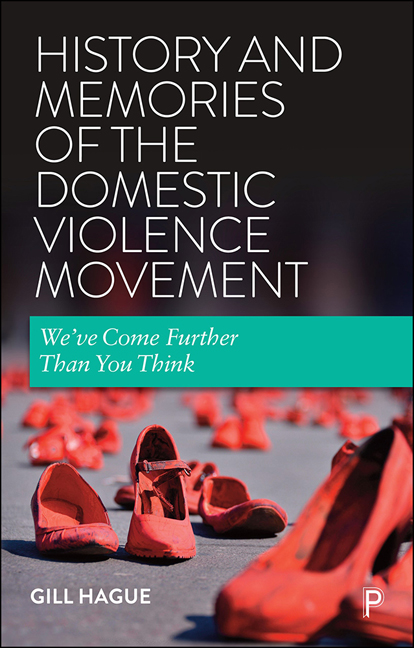Book contents
- Frontmatter
- Dedication
- Table of contents
- List of poems
- About the author
- Acknowledgements
- 1 Introduction
- 2 Everything seemed to change at once: women’s liberation and the women’s movement(s) from the 1960s
- 3 Women’s liberation: strands, debates, transformations
- 4 The violence against women movements burst into life
- 5 Taking on rape and sexual violence, as well as domestic abuse
- 6 A radical women’s politics: the light of innovation and new ways to organise
- 7 Wider feminist principles and domestic violence: making a new world
- 8 As time went on: the movements on domestic violence and harmful practices grow
- 9 Struggling to change: campaigns, laws, and local and global strategies
- 10 Activist responses, justice and shelters (refuges) across the world
- 11 Expanding the movements, gaining the evidence: feminist research and transnational action
- 12 End word
- Notes
- Bibliography
- Index
11 - Expanding the movements, gaining the evidence: feminist research and transnational action
Published online by Cambridge University Press: 23 December 2021
- Frontmatter
- Dedication
- Table of contents
- List of poems
- About the author
- Acknowledgements
- 1 Introduction
- 2 Everything seemed to change at once: women’s liberation and the women’s movement(s) from the 1960s
- 3 Women’s liberation: strands, debates, transformations
- 4 The violence against women movements burst into life
- 5 Taking on rape and sexual violence, as well as domestic abuse
- 6 A radical women’s politics: the light of innovation and new ways to organise
- 7 Wider feminist principles and domestic violence: making a new world
- 8 As time went on: the movements on domestic violence and harmful practices grow
- 9 Struggling to change: campaigns, laws, and local and global strategies
- 10 Activist responses, justice and shelters (refuges) across the world
- 11 Expanding the movements, gaining the evidence: feminist research and transnational action
- 12 End word
- Notes
- Bibliography
- Index
Summary
We turn now to another previously-unprecedented development, stemming out of women's activism: feminist research. This sort of research on social issues has been evolving, in both Western and ‘Majority World’ countries, since the late 1970s, with much new theory and practice developed. A ground-breaking paper by Marcia Westcott in 1979 elaborated such feminist contributions. They were, she suggested, like strands that viewed social knowledge as: ‘open, contingent and humanly compelling’, as opposed to ‘closed, categorical and human controlling’. ‘To attend to the feminist criticism,’ she suggested, ‘is to open the Social Sciences to both the feminist challenge and its hope.’
Powerful words indeed. The idea was gradually developed, along ‘the challenge and the hope’ lines, that feminist research could be used as a tool for social change. New feminist challenges developed regarding, for example, avoiding essentialism in regards to viewing women as a single ‘category’. The idea that social research could be entirely objective and value-free was also much questioned. It was argued (not only by feminists, but by many radical movements and critical theorists, too) that belief in total objectivity, akin to that in some sorts of scientific research, may not be possible in the social sciences. On some subjects, it could seem as if the gaze of so-called ‘total objectivity’ could be a (heterosexual) male one (as elucidated, in one example, in the famous film studies work from 1975 of Laura Mulvey). It could also be a gaze that was oblivious to, or unconscious of, other perspectives, which might have given a different view (say, that of minority women).
There was much debate as to what it actually meant to say you were doing feminist research. Perhaps the strongest feature identified was that it was research that served the cause in some way, research as an activist endeavour, as the Dobashes proposed in 1988. This type of research could be seen as research ‘for women’, that advanced or improved women's lives, and that, where possible, both broke down power differences and was collaborative. Feminist research could thus become an emancipatory enterprise (in its broadest sense), and one that could also take on other issues of oppression (including, for example, on grounds of class, poverty, heterosexism, and racism).
- Type
- Chapter
- Information
- History and Memories of the Domestic Violence MovementWe've Come Further Than You Think, pp. 199 - 216Publisher: Bristol University PressPrint publication year: 2021



